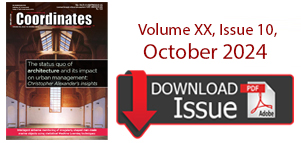Report of the UN-GGIM Academic Network Forum
On 31 July 2017, the UN-GGIM Academic Network, in close collaboration with and the support of UN-Expert Group on Land Administration and Management, UN-GGIM Private …

Fundamental to the challenges facing the reform of the Indonesian land sector is that it lacks a comprehensive land law. All land in Indonesia falls into one of two categories: (i) forest estate (kawasan hutan); and (ii) non-forest estate (Areal Pengunan Lain, APL). As such, land is administered under a dual system through two different government agencies, the Ministry of Forestry (MoFor) and the National Land Agency (Badan Pertanahan Nasional, BPN) responsible for forestry and non-forestry lands, respectively.















 (5.00 out of 5)
(5.00 out of 5)